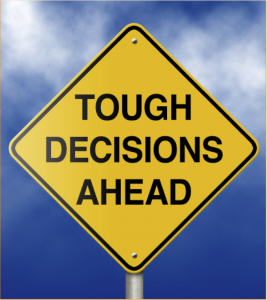 How can we gain more loyalty in our life, from our family, friends and those that we work with?
How can we gain more loyalty in our life, from our family, friends and those that we work with?
By being loyal to them. As we build our personal trustworthiness with others, they see they can depend on us in difficult circumstances.
Loyalty can get sticky though when a person tells us something or we become aware of an action that is not safe or fair for themselves or others. What if we came to know that a person we were close to was involved in an illegal activity. How would we handle it if we learned that they had become abusive with a mate or child. While we may not want to damage our relationship we must ask ourselves these two questions to make a decision we will be able to live with for a long time:
Will I feel proud of myself, if I choose to speak up or if I choose not to speak up? How would I be affected long term if I did not speak up and further damage was done to this person or to others?
What are the results I am looking for if I choose to speak up? Am I looking to get this person in trouble or am I reporting to keep them and others safe?
Have you ever had the need to tell a person of authority something that you knew the other person would prefer you not to tell? This is a big responsibility for an adult and we can see why this would be very difficult for a child to figure out the right thing to do.
Building our relationship to a high level of trust with our children will give them the confidence to come to us and tell us those ‘secrets’ that are confusing to them. This month as we have talked to our students about loyalty, we have emphasized in every class the importance of speaking to their parents when these difficult decisions need to be made. This is not for the parent to tell them what to do, but rather for them to guide them to find the answer that fits the values of the family.
Keep your conversations going with your children on loyalty and other life skills. Balanced Life Skills is here to help start those conversations. Together we are creating a culture of peace in our families, schools and communities.
